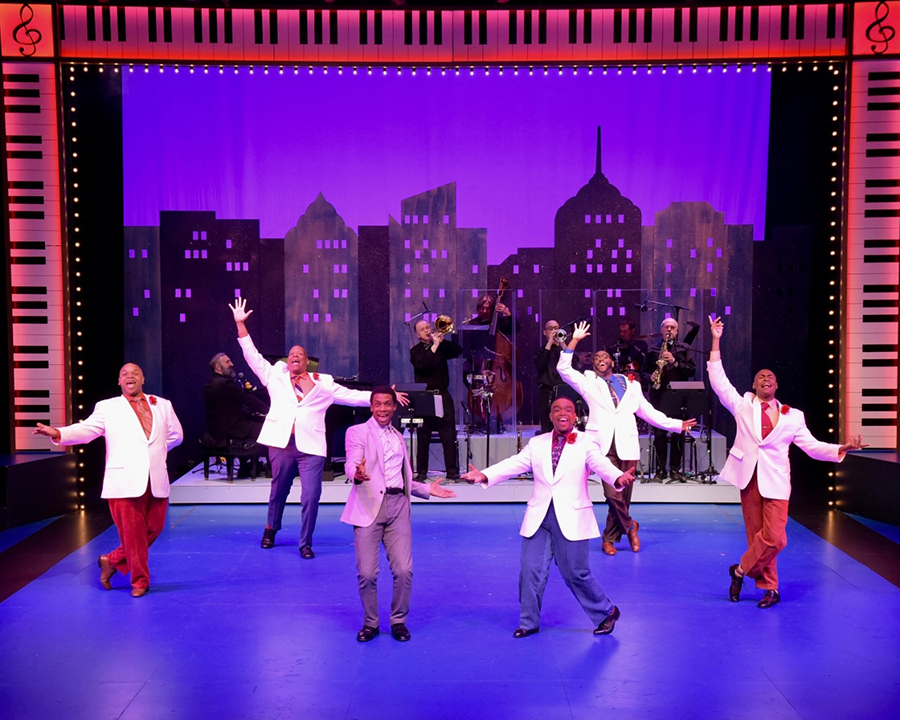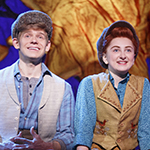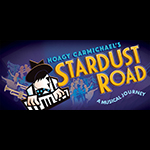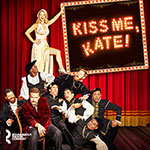Five Guys Named Moe
Westchester Broadway Theater, Elmsford, NY, February 14, 2020
Reviewed by Chip Deffaa

It’s nice when you get the feeling, right from the first moments of a production, that the show is in good hands. And I got that feeling, right away, watching the high-spirited, fast-moving revue Five Guys Named More, which is currently playing at Westchester Broadway dinner theater. There’s a lot of talent on that stage. That was clear from the moment the first actors stepped out.
Director/choreographer Richard Stafford, who’s mounted many of the most satisfying productions I’ve seen at Westchester over the years, has found six performers—Tyler Johnson-Campion, Tony Perry, Isaiah Reynolds, Quentin Avery Brown, Napoleon M. Douglas, Douglas Lyons—who do justice to the hits of Louis Jordan.
What a treat it was to see Tony Perry once again; it felt like seeing an old friend. He was one of my favorites in Westchester’s production of Ain’t Misbehavin’” a year ago, and he has a great feel for this type of material. The other five players are all brand new to me, but the show has been well cast. Ebullient Tyler Johnson-Campion repeatedly lights up the stage. (He’s a find!) Quentin Avery Brown sings Jordan’s 1946 ballad hit “”Don’t Let the Sun Catch You Crying” beautifully; I liked his timbre and the feeling. Each of the performers has his own personality, and each gets moments to shine individually. There’s much to enjoy here. They even work in a bit of call-and-response audience participation and parade about the house.
Louis Jordan, of course, was the jump-blues pioneer whose recordings bridged the gap between big bands and rock ‘n’ roll. A singer, sax player, and songwriter, Jordan got his start with Chick Webb’s famed, Harlem-based big band and then formed his own small group, Louis Jordan and his Tympany Five. (The actual number of musicians Jordan used varied over the years.) He recorded many hits in the 1940s and early ’50s. Jordan continued performing and recording until his death in 1975, but his years of greatest popularity were the 1940s and early ‘50s. Others he influenced, such as Fats Domino, Chuck Berry, and Bo Diddley, surpassed him in popularity in the 1950s. By the time he died, he was almost forgotten. But he was an important trend-setter in his day.
I remember when Clarke Peters conceived this show and was trying so hard to interest producers in a revue of Louis Jordan’s hits. One seasoned, savvy showbiz pro told me—back in the late 1980s—that it “would never work. Nobody plays Louis Jordan’s records anymore. They’re old-fashioned, he’s forgotten.” But Peters was determined, and the show he conceived and performed in (in both the U.S. and England)—Five Guys Named Moe—proved a surprise hit. Jordan’s joyous, playful music won over a new generation.
The best of Jordan’s numbers such as “Let the Good Times Roll,” “Caldonia,” “Choo, Choo, Ch’boogie,” and “Is You Is or Is You Ain’t My Baby,” remain irresistible. If you’ve enjoyed shows like Ain’t Misbehavin’ and Smokey Joe’s Café, you’ll enjoy this one. It’s in a similar vein—although not quite as strong as Ain’t Misbehavin’” or Smokey Joe’s Café. (They’re put together a bit better.)
One minor complaint—and I’ve felt this way about every production of this show that I’ve seen—is that the band doesn’t fully capture Jordan’s spirit. The band sounds like any fine, clean, professional—but rather generic—show band. Jordan’s musicians swung the blues with a joyous elan of their own, a certain feeling that made their music infectious. In this production, the charts are being played cleanly and accurately but, at times, I just wished there were a bit more “grease.” Jordan seems to have taken some of the musical magic with him.
This is the 216th production at Bob Funking and Bill Stutler’s Westchester Broadway Theater—and their very first production ever of this popular little show. I’m not sure what took them so long, but they’re presenting the show with panache. The cast members are enjoying themselves. You can’t help but get caught up in the feeling. I wanted to thank each member of the cast personally, after the show, for the good vibes they generated on that stage.





